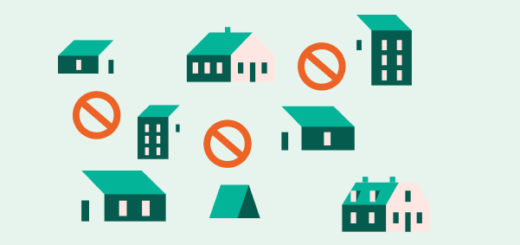How to Compare Home Insurance Quotes
Our goal is to give you the tools and confidence you need to improve your finances. Although we receive compensation from our partner lenders, whom we will always identify, all opinions are our own. By refinancing your mortgage, total finance charges may be higher over the life of the loan.
Credible Operations, Inc. NMLS # 1681276, is referred to here as “Credible.”
A home insurance quote is a price estimate for a policy to protect your home. Since home insurers base their quotes on their own pricing formulas, prices can vary widely. Perhaps that’s why the Insurance Information Institute recommends getting at least three quotes to compare prices and make sure you’re not overpaying for homeowners insurance coverage.
For the most accurate apples-to-apples comparisons, request quotes for similar coverage amounts and types from each provider. And while getting an affordable policy is important, price shouldn’t be your only consideration. You may find that a policy with lower premiums offers less favorable limits, deductibles, and coverage options.
That’s why it’s important to compare several home insurance quotes to potentially earn substantial savings on a policy that meets your needs.
Here’s what you need to know about comparing home insurance quotes:
What do you need to get a home insurance quote?
You can usually get a price quote quickly and easily, especially if you prepare ahead of time. You can ensure the process goes smoothly by gathering the following information before contacting an insurance agent:
- Household info: Be prepared to answer your agent’s questions about yourself and others who live in your home, including your marital status, how long you’ve lived in your house, and whether you own pets.
- Home details: You’ll need to talk about your home’s features, including its square footage, age, the type and age of your roof, and the style of the home. This information helps your agent determine how much coverage you’ll need and the replacement cost of your home.
- Insurance history: Your agent may ask you about your existing homeowners insurance policy coverage if you have it, and any prior insurance claims.
- Safety features: A home security system, fire sprinklers, or smart home technology may make you eligible for a policy discount.
- Home improvements: When you buy homeowners insurance, you want to make sure your policy matches your home’s current value and replacement cost. As such, it’s important to tell your agent about improvements that add value to your home, like replacing your roof, remodeling your kitchen, or finishing your basement.
Credible makes it easy to compare homeowners insurance quotes from top carriers.
How to compare home insurance quotes
Homeowners insurance carriers consider several factors when calculating your premiums for a policy. These components include the types and amounts of coverage you want, personal information, property details, and your deductible. Consider these factors as you take the following steps to compare homeowners insurance quotes:
Determine your coverage level
When comparing quotes, keep a keen eye on the types and amounts of home insurance coverage an insurance provider offers you. You’ll generally find these six types of coverages, with options and amounts that vary from insurer to insurer.
| Type of coverage | What it covers | Coverage amount |
|---|---|---|
| Dwelling | Damage and destruction to the home | You get to choose (subject to minimums required by your mortgage lender) |
| Other structures | Structures on the property that aren’t attached to the home, including sheds, fences, and free-standing garages | About 10% of dwelling coverage |
| Personal property | The cost to repair or replace damaged or stolen personal items, like furniture, appliances, clothing, and electronics. Also usually includes off-site storage units. | Often between 50% to 70% of dwelling coverage |
| Loss of use | Hotel expenses and some other living expenses while your house is being repaired | About 20% of dwelling coverage |
| Liability | Legal expenses if you are sued for any injuries or property damage that you or a family member cause to others on your property | Limits usually start at $100,000 |
| Medical payments | Direct payments of medical bills for someone who was injured on your property | Usually between $1,000 and $5,000 |
Your dwelling coverage is perhaps the most essential component of your home insurance policy. You have four different levels of replacement coverage to choose from for your home. Here are the four replacement coverages, from the least to the most comprehensive:
- Actual cash value: With this coverage, your insurance carrier will pay you for your home’s worth, minus depreciation. In this case, the actual cash value may not completely cover the cost of rebuilding your home, since the policy would pay less for older belongings and materials.
- Replacement cost: Replacement cost provides a higher level of protection, with higher premiums than an actual cash value policy. This protection covers the cost to rebuild your home and replace your possessions without factoring in depreciation. So, if it would cost $700 to replace your washing machine with a similar one today, you’d get $700.
- Extended replacement cost: This coverage type extends the limit on your replacement cost coverage between 10% and 50%, typically as an insurance rider. The additional coverage may help you repair or rebuild your home when building costs rise in your area over time.
- Guaranteed replacement cost: Guaranteed replacement cost provides you with the highest level of protection and is usually more expensive than the previous policy types. While extended replacement cost comes with a limit, guaranteed replacement cost typically doesn’t. Your insurance carrier will pay to repair or rebuild your home even if your claim exceeds your policy limits.
Remember, premiums are important, but choosing the right coverage type and limits is equally important. The temptation to choose a policy based solely on its premium price is understandable. But you’ll sleep better knowing your home is adequately covered if an unfortunate disaster hits your home.
Learn More: Home Insurance Replacement Cost vs. Market Value
Get quotes from multiple insurance providers
You can get quotes by contacting agents by phone or visiting an insurance carrier’s website. You can also use Credible to easily compare multiple quotes for homeowners insurance.
When you get quotes from home insurers, you’ll have to submit some basic information about yourself, your home, and your insurance needs, including:
- Personal information: Your name, birth date, address, contact information, and Social Security number
- Home information: Year your home was built, date of home purchase, square footage, how many people live there, style of the home, and style and age of your roof
- Insurance information: Your current coverage amounts if you have home insurance, and the replacement cost of your home
Getting quotes from many reputable companies is essential to finding the best value for your homeowners insurance needs.
Review each quote for accuracy when comparing policy coverages
Review the quotes you receive to ensure each one is accurate and as similar in coverage as possible. Only by comparing quotes with similar coverage options and limits can you make a close comparison of your options.
Look at the coverage limits in all six areas (dwelling coverage, personal property coverage, etc.), as well as the following:
- Your deductible
- Replacement cost or actual cash value coverage
- Any discounts
Narrow your search for the best home insurance policy by identifying the quotes that provide the best value — the most protection at the most affordable price.
Check Out: Homeowners Insurance Deductible: What You Need to Know
Compare premiums
Review all the quotes you receive, and compare how much coverage each insurer provides and the premium amount you must pay for that insurance. Comparing premiums is a crucial step in getting homeowners insurance because it helps you see which carriers provide the best balance between coverage and home insurance cost.
Because carriers use different pricing models, prices can vary significantly. If you like the coverage an insurer offers but not the price, you may be able to lower your rate by increasing your policy’s deductible. That’s the amount you must pay if you have to file a claim before your insurance kicks in. While you’ll save money on your premium, you’ll pay more out of pocket if you file a claim for a covered loss.
With Credible, you can easily compare homeowners insurance quotes from various carriers, all in one place.
Compare insurance carriers
If disaster strikes, you want to be confident your insurer is financially stable and will be there for you when you need it most. Before you sign your name on a new homeowners insurance policy, take the time to vet the insurance company.
You can start by asking friends and family about their experiences with their homeowners insurance provider. You can also view insurance carrier profiles and a complaint index through your state’s insurance department website or through the National Association for Insurance Commissioners site.
Learn More: Types of Homeowners Insurance
Ask about discounts
When comparing quotes, it might pay (literally!) to check with each home insurer about potential discounts. For example, you may be eligible for a bundling discount if you take out a home insurance policy through your car insurance provider, which can also be a convenient option.
Discounts vary by insurer, and you may not be eligible for any discounts, but it never hurts to check. You might score a lower rate through your employer, professional association, alumni group, or another organization. You may also be able to save on your premiums by reinforcing your roof or making other improvements to make your home more disaster-resistant.
Disclaimer: All insurance-related services are offered through Young Alfred.




